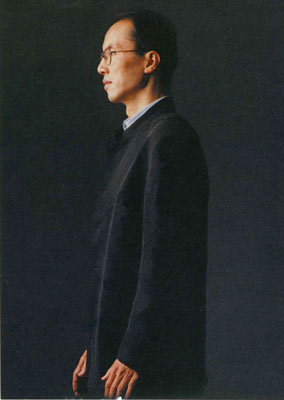CAMA Presents the Shanghai Symphony
China's Oldest Orchestra to Appear with Pianist Yuja Wang
On Friday, the Granada hosts what may be the most interesting and unusual classical concert of the season. The Shanghai Symphony, China’s oldest orchestra, will appear with Long Yu-the top Chinese maestro of the moment-at the helm, alongside Yuja Wang, the 22-year-old piano sensation who wowed Santa Barbara audiences last season with a memorable solo recital at the Music Academy’s Hahn Hall. The first part of the program will be focused on relatively well-known pieces by Russian composers Modest Mussorgsky and Sergei Rachmaninoff, but after the intermission, the orchestra, with the help of sopranos Xiaoduo Chen and Meng Meng, along with a trio of musicians playing traditional Chinese instruments, will take on the 46-minute composition Iris Devoilee by Chinese composer Qigang Chen. This concerto, which blends Chinese music with Western-style composition influenced by French composers Claude Debussy and Olivier Messiaen, develops the theme of the “eternal feminine” through a sequence of nine musical portraits of different, supposedly feminine traits, ranging from “Chaste” to “Libertine,” and from “Ingenious” to “Voluptuous.”

Chen comes from the generation of Chinese composers that includes Tan Dun, and who sometimes are called the “Gang of ’78,” referring to the year in which they returned to music school after enduring the painful exile and re-education of the Cultural Revolution. In addition, Chen’s resume lists such accomplishments as directing the musical portion of the opening and closing ceremonies of the 2008 Olympic Games, and he is celebrated routinely by the Chinese establishment for his achievements. Despite this government approval and role in the creation of popular entertainment, Chen’s music remains eerie and full of subtle, moody passages that suggest that he took his apprenticeship as the last composition student accepted by Messiaen very seriously. I have listened to Iris Devoilee a dozen times now, and it grows more distinct and haunting with each repetition. The blending of the Chinese and the European musical styles is seamless, and the atmosphere it creates is one of stark beauty and ethereal surprise.
The conductor of the Shanghai Symphony, Yu-who has been likened to a bulldozer thanks to his relentlessness and political savvy-will stand tall as he conjures for American audiences what is, after all, a very Chinese scene. In China, where a reported 30 million people currently are studying the piano, the audience for classical music is young and widespread. In the United States, where aging classical audiences are also dwindling, Chen’s approach may not win as much approval as it has in his home country. The reports from last week’s Carnegie Hall appearance with Lang Lang as guest soloist indicate that, in New York at least, people were more interested in hearing Lang Lang showboat through Rachmaninoff’s Concerto No. 2 than they were in listening to a new work in a hybrid French-Chinese style.
Yet there is hope for this Santa Barbara appearance on two fronts. First, Yuja Wang will be taking the bench rather than Lang Lang, and, if last year’s recital is any indication, her performance of the Rachmaninoff will be first-rate. Second, the Granada is the ideal hall for listening to a grand concerto that involves singers. Every sound made on these Chinese traditional instruments will carry to the last row of the balcony-we’ll just have to wait and see what the people sitting there choose to make of that sound when it reaches them.
4•1•1
The Shanghai Symphony Orchestra will perform at the Granada Theatre (1214 State St.) this Friday, November 20, at 8 p.m. For tickets and info, call 899-2222 or visit granadasb.org.



